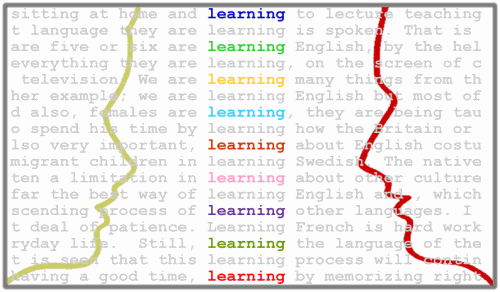Yesterday I wrote that the expression “achieve a breakthrough” sounded odd to me, and I much prefer the more frequent “make a breakthrough”.
“Achieve a breakthrough” is, however, a robust collocation (after MAKE, ACHIEVE is the most frequent lemma with “a breakthrough” in COCA; and it has a high MI score). So why did it sound so odd to me? Have I somehow just not encountered it much? Well, maybe sorta.
In the COCA data, any form of ACHIEVE occurs immediately to the left of “a breakthrough” 24 times, while any form of MAKE in that position occurs 65 times, a ratio of about 1:3. COCA provides register/context information in its KWIC displays, and this info showed me that of ACHIEVE’s 24 occurrences, 2 were in spoken contexts (a little over 8%), while 18 of 65 MAKE hits were spoken (a little under 28%). So, the ratio in spoken contexts is 1:9. Alternatively, in non-spoken contexts the ratio is about 1:2.

I was in a speaking/listening skills oriented class, and we were talking about “achieve a breakthrough”. Perhaps the expression sounded odd to me because it’s not an expression I hear much, even if it would be unremarkable to me in a written context. That is, perhaps it is primarily an expression of written English, but not spoken, and thus it struck me as out of place or something.
I don’t actually think COCA is the best source of data about spoken English, but this sort of thing could be explored in other, maybe more suitable corpora.
Title note: when I said it sounded odd to me, I meant in a broad sense it seemed odd to me. Now I realize I may have unintentionally described how it really, literally, sounded odd to me.

hi Michael good point about register/genre
another way to look at this in COCA is to use the sections and drop frequency min to say 3; u can see some interesting results.
i think with the KWIC it only gives a sample of what’s available compared to default search?
ta
mura
LikeLiked by 3 people
Yes, you’re right; I ran the query in just the spoken sub-corpus too, to be sure the numbers didn’t change.
I think the KWIC is only a sample if the lines are limited to, say, 100, but there are in fact more hits of the target
LikeLiked by 2 people
Oh, I think I was confused. I was talking about the KWIC lines when you click for more context in the default search … not the KWIC search option. I think you are right about that being a limited sampling. sorry for the confusion.
LikeLiked by 2 people